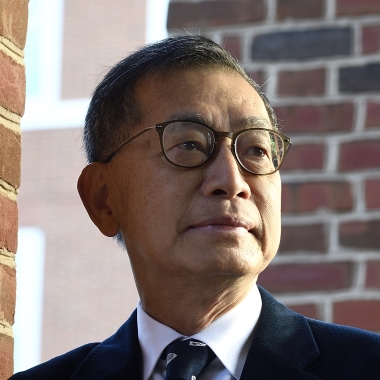
Chi Van Dang
Department of Biochemistry and Molecular Biology, Bloomberg School of Public Health
Dang is a leading cancer biologist and hematologist-oncologist best known for defining the function of MYC, the first cancer gene known to act as a switch, turning on metabolic pathways and mechanisms that are advantageous for cancer cells. Disrupting these pathways could be a powerful approach for treating many types of cancer, and Dang aims to exploit this knowledge for therapy by targeting the cancer cell metabolism.
Dang is also the scientific director of the Ludwig Institute for Cancer Research where he oversees the organization’s strategy to advance the prevention, diagnosis, and treatment of cancer through the organization’s international network of research laboratories at prominent academic institutions. Dang’s recent work has begun to focus on how the circadian clock affects tumor biology, and how these clocks can be manipulated for therapeutic purposes. When MYC is activated in certain types of cancer cells, it destroys the circadian clock and cancer cells are able to grow more rapidly than non-cancerous cells because their functions are not regulated by a clock. Meanwhile, other cancers require the circadian clock in order to grow. Dang investigates the molecular mechanisms behind these processes, and why different types of cancers react in these opposite ways. Dang hopes that by finding a way to adjust the clock, cancer cells could be made more sensitive to therapy.
Dang joined Johns Hopkins University as a Bloomberg Distinguished Professor in 2022 from the Wistar Institute.